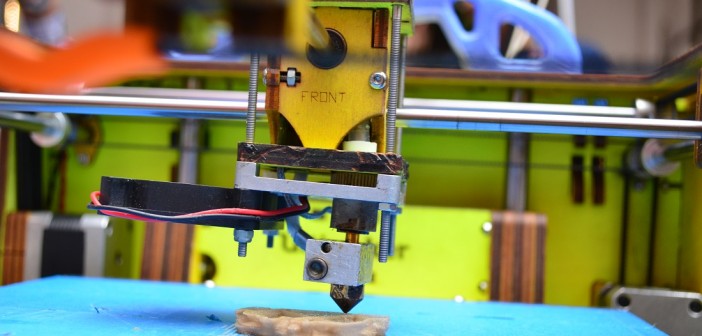Scientists representing Tokyo University, Japanese medical research firm NEXT 21 K.K and Japan’s New Energy and Industrial Technology Development Organization (NEDO) have joined forces to advance the development of 3D bioprinting technology that will allow doctors to create and manufacture “custom-made” cartilage, joints, skin and bone.
3D bioprinting is a relatively new technology, but once refined will usher in a new era when doctors can make bone, tissue, cartilage and even entire organs from scratch. The potential for this technology will inevitably lead to the replacement of worn-out body parts that will greatly increase the average person’s life expectancy. In fact, 2015 might be a landmark year for this technology as Japanese bioprinting companies have started to use a new 3D printer which combines stem cells and synthetic materials to print bone, cartilage and skin cells.
No ad to show here.
According to Professor Tsuyoshi Takato from the University of Tokyo Hospital, the process begins by taking CT scans of a patient in order to bioprint the form-fitting implants. Because the newly printed cells are manufactured using the cells from a patient’s bone or cartilage, the implants are less likely to be rejected and more likely to be assimilated quickly.
Never heard of 3D bioprinting? Check out this great TED Talk:
Are other bioprinting companies making progress?
The number of lives we could save by creating new organs using 3D bioprinting is enormous. The demand is already astronomically high: a person dies every 30 seconds because we lack the means to supply replacement organs. The economic impact is staggering, and the opportunity for profit is just as high. That’s why so many companies are researching bioprinting.
And if it can be printed, scientists are trying to find a way to print it. For example, researchers for TeVido are learning how to reconstruct breast and nipple tissue for those who have fallen victim to breast cancer. Cyfuse Biomedical is working on blood vessels, urinary organ systems and constructing a working liver. And of course, the technology will have applications beyond just recreating human organs and tissue. Other bioprinting companies are researching methods to produce synthetic meat and leather, potentially reducing animal cruelty and helping feed the hungry.
What do you think of this crazy technology? Will bioprinting companies allow us to upgrade our organs and other body parts in the near future? Would you prefer a bioprinted implant over another person’s organ?
Article originally published on TechGenMag.
